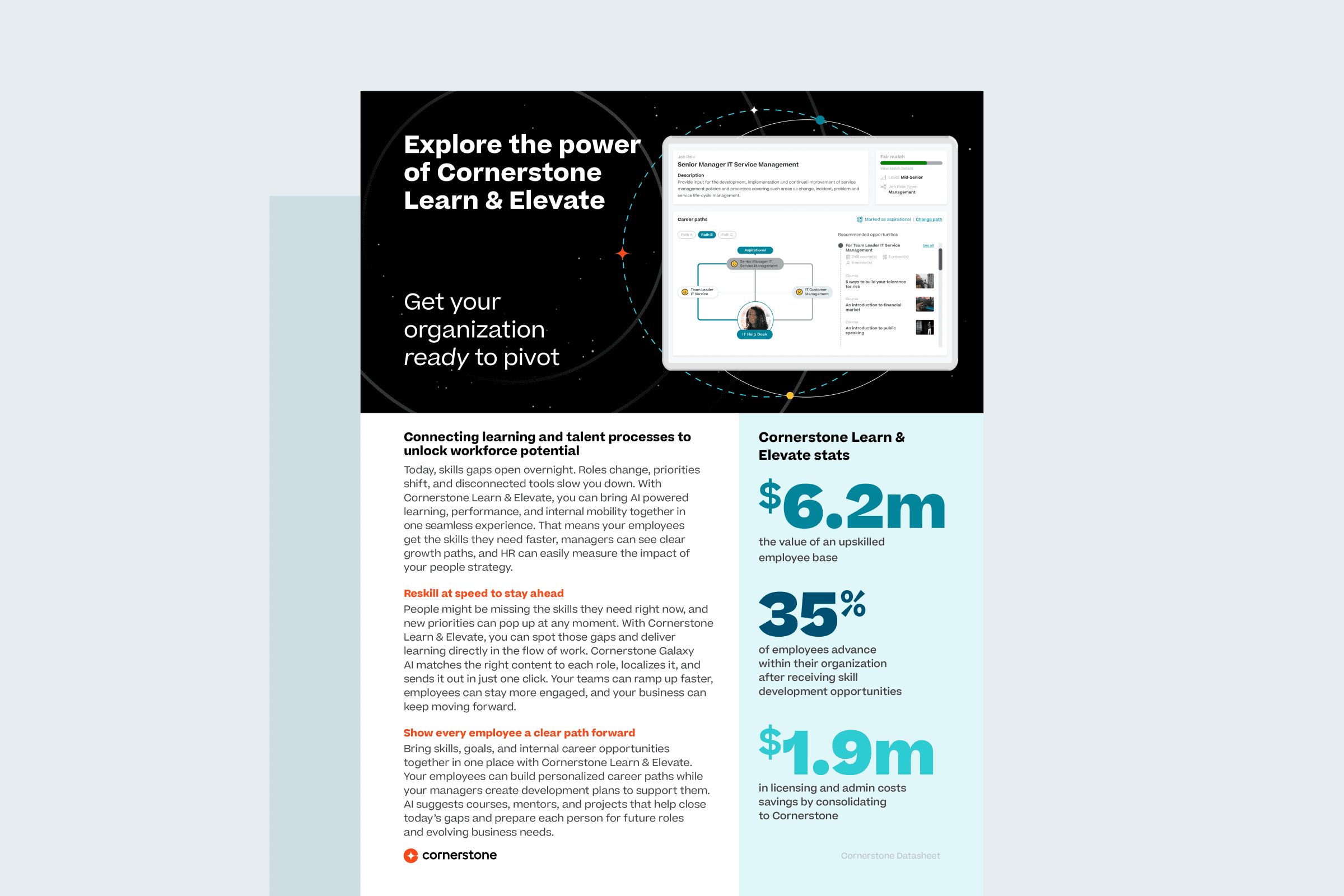Human resources professionals manage your company's most important asset: your people. From regulations and compliance issues to hiring, developing and engaging employees, HR pros are the key to staying competitive in today's talent market.
But while the value of talent management is great, investing in a sole HR employee—let alone an entire department—can seem out of reach for many small businesses. The consequence? Some studies suggest that a lack of HR directly impacts business success—research from the Stanford Project on Emerging Companies during the first dot-com boom found that companies who invested in HR expertise first were the fastest to go public and the least likely to fail. But this doesn't necessarily mean you need HR on day one.
We talked to a handful of talent management professionals and small business owners to get their take on where HR should land on the totem pole of priorities for your small business.
Consistency, Compliance and Culture
"They shouldn't wait," says Arlene Vernon, President of HRx, Inc., an HR consulting firm. "Some businesses see it as an expense, rather than seeing the financial and operating benefits a skilled HR person can bring," Vernon says.
There are many laws, regulations and compliance issues HR handles. For example, once you reach 50 employees your company must offer the Family and Medical Leave Act, says Vernon. If you have 50 full-time equivalents, compliance with Affordable Care Act is required. Then there is the issue of employee conflict, performance reviews, salary negotiations, recruiting, interviewing, orientation, on-boarding and more. The list of duties HR handles is long.
"Statistics regarding HR staff to employee fluctuate by industry, but the standard is approximately one person in HR for every 100 employees," Vernon says. "However, when companies reach 50-75 employees, it's typical that the first HR person is added." While a company can outsource parts of HR to make operations easier (such as benefits and retirement administration) and hire consultants for handbooks, compensation analysis and recruiting, at a certain point companies need a central person to ensure consistency, compliance and support your organization's culture.
"If you're at the questioning point of whether to add HR or stay [with the] status quo, most likely you already have the need," Vernon says.
Focus on the Long Term
If you do "get away" without an HR department, what exactly are you getting away with? That's the question HR Business Partner at Sandia National Laboratories and consultant Max Dubroff, SHRM-SCP, posed. If your answer relates to saving money, he says, you're thinking too short term.
He offered one of his clients as an example. The leadership thought it was doing fine after more than 12 years of success and growth to more than 350 people, but a new operations leader saw a missed opportunity and brought in the company's first HR professional. She lowered turnover from more than 200 percent annually to 92 percent and cut avoidable costs in unemployment and workers compensation by more than 70 percent over nine years. This enabled the company to grow in many ways, including tripling the size of the company and adding new lines of business.
People Are Your Most Important Asset
If you believe people are your most important asset, you better have someone in charge of your human capital, says Kim Shepherd, CEO of Decision Toolbox, an outsourced recruitment solutions provider. She sees HR as necessary for companies with 500 to 3,000 employees.
"If your firm is poised for rapid growth, it's a good idea to welcome HR to the senior table," says Shepherd, who has more than 20 years of experience and is a recognized global thought leader in the industry. "There has been plenty of proof that an 'A player' has a strong ROI. Whether you outsource or insource, spend some money on this function."
For companies below 500 employees, Shepherd suggests outsourcing the HR function, noting that there are plenty of seasoned professionals for hire on a part-time basis. HR plays a role on two sides of the fence—compliance and the talent lifecycle. But companies can look internally to help with the more culture and development-focused HR functions if they don't have staff in place.
Photo: Twenty20


